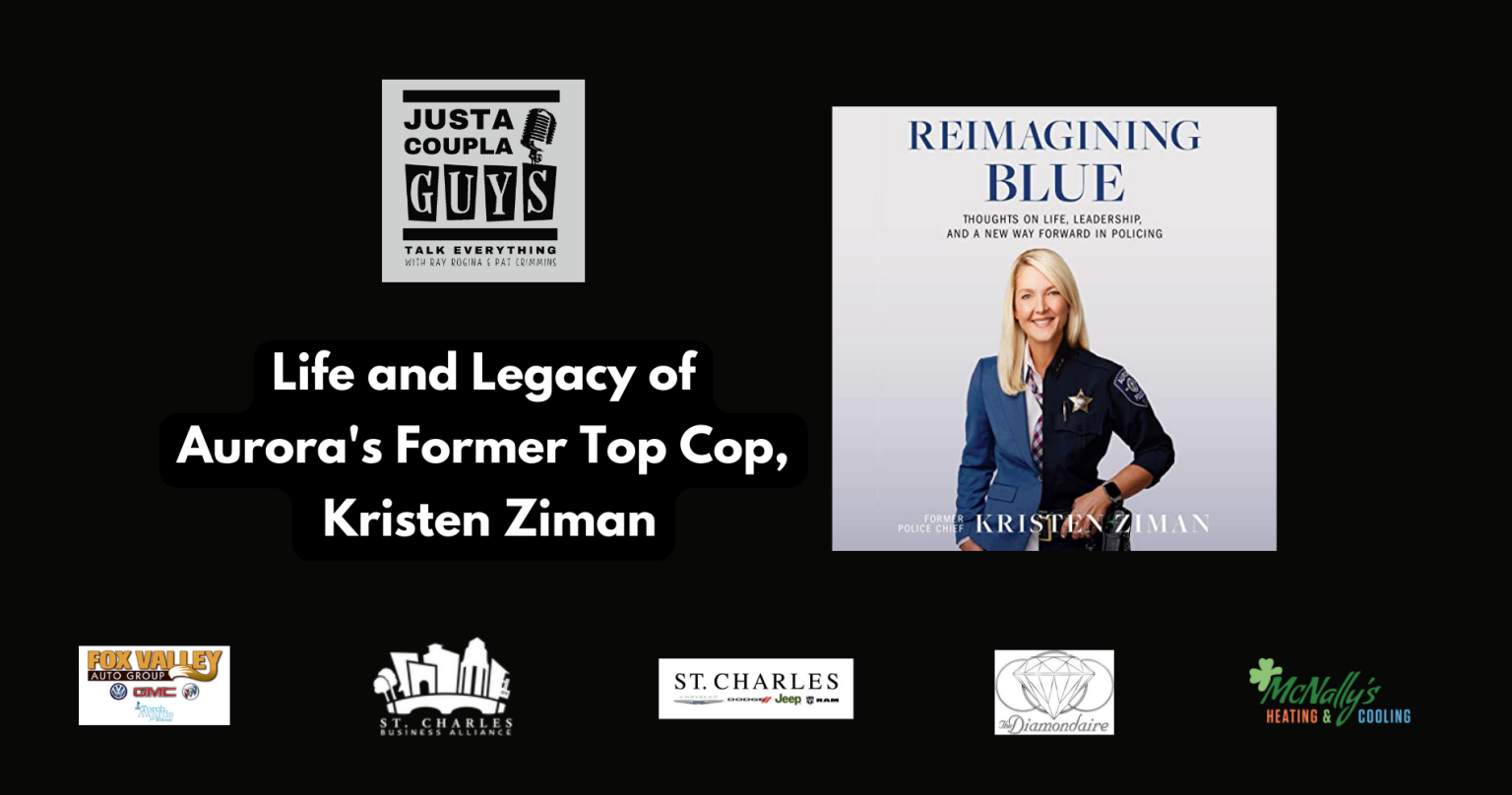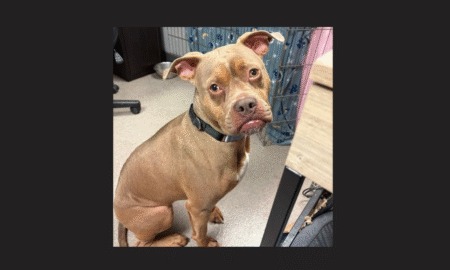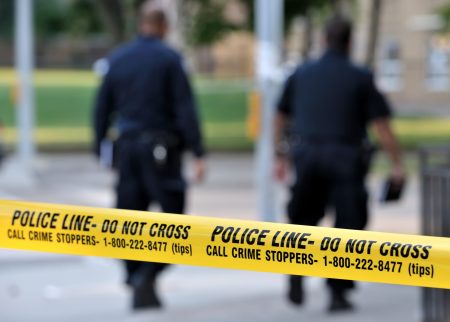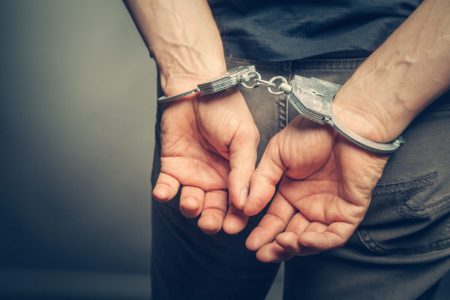From the July 2022 issue of Fox Valley Magazine.
Whether we are pro-life or pro-choice, pro-police or anti-police, black or white, we are all living and breathing humans that deserve to move about the world in our own way. As long as we aren’t harming one another, we should be free to pray to the God we choose or love the person we love.
Above all, not one of us should ever believe that we are better than another. Inequity is born from the belief of feeling superior to another. And we are all just trying to climb our own mountains.
You are alive at an absolutely critical moment in time. Show up for this life, find your purpose, but don’t stop there because that only serves you, your true calling is determining your gift and then using it to serve the world. – Kristen Ziman
Kristen Ziman’s tenure as Aurora’s Chief of Police was marked by triumphs and tragedies, both personally and professionally. Her 2016 ascension to the top job, making her the first female Chief of Police in Illinois’ second-largest city. The loss of her father just before coming Chief. George Floyd and the riots and anti-police acrimony that ensued. And, of course, that “darkest day” in February 2019, when a disgruntled employee shot and killed 5 employees at the Henry Pratt Company.
Ziman officially retired from APD on August 6, 2021, and has since written a book Reimagining Blue, Thoughts on Life, Leadership, And A New Way Forward In Policing, available on Amazon. She was recently appointed to the federal task force investigating the mass shooing in Uvalde, Texas, and plans to work as a leadership consultant going forward.
Ray Rogina and Pat Crimmins of the Just A Coupla Guys podcast caught up with Ziman recently for a wide-ranging conversation about her life, career and what comes next. The full podcast is accessible below. Herewith, a few excerpts from that interview.
On today’s societal tensions
We’re human. And I think this is where we are failing one another, not leaning into one another. When you look at cops and you see an enemy, when you look at people who are different and you see an enemy, when you look at people with whom you disagree, whether it be lifestyle, politics, whatever it may be. We leaning into one another and actually getting to know one another is what builds that bridge. It’s hard to hate when you’re up close, it’s easy to hate far away. And so that’s really the premise, we’re all just trying to move about the world. And as long as we’re not harming one another, and I wanna pause right there because that harming one another is it goes for police as well. And I think you see in my book that I’m not a blind loyalist. I try to call balls and strikes. When cops are committing acts of excessive force, I call it as I see it. But when people are committing crimes, I call it as I see it. So to me, when you’re not harming one another, that goes for everyone, it’s called personal responsibility. And honestly, that’s my religion right there.
On how policing has changed during her career
Well, it it’s interesting because I started my career in 1991. I started as a police cadet and right when I started at the police department, the Rodney King incident had just happened and that created and civil unrest all across the nation. I ended my career with George Floyd and that caused protests and unrest across the nation. So if you look at the two bookends of my career, you would make an assumption that nothing got better in policing. And I defy that because I watched it with my own eyes.
When I came on, the only discipline we got was an ass-chewing by the Lieutenant. You got called in and it was, “Hey kid, knock it off.” And that was a citizen complaint. Wasn’t documented. There was no consistency, no continuity in discipline accountability. There wasn’t any, and it was also commonplace for a Rodney King event, you know, to give somebody a “what for” is what I call it. When they ran away. It was like, that’s what my FTO taught me. Somebody runs from you, they’re gonna get it. They get a pounding.
Oh my gosh, that is not where we are today. And over the years, I’ve watched the evolution of policing. I’ve watched the formal accountability. Cell phones have played a part in it because we didn’t have that technology prior to this. So I would say that’s one of many layers, but I also know that that’s not the best of us. What you’re seeing in those videos is deplorable and there’s no defense for it, but those are quite frankly, an anomaly and progressive police departments, progressive leaders have changed our profession into an actual profession over the years.
On her relationship with her father
So my dad was two people to me, a hero and a raging alcoholic. And the hero side of him was his work as a police officer. He was the kind of guy that ran towards things. And this is why I wanted to be a cop.
I was in the family station wagon with the wooden panels and he would say, don’t move, stay here. He’d throw the car in park. And he would go and pull someone out of a vehicle that was on fire. And I remember sitting in the car, looking out the window and people were just whizzing by. And my dad was there pulling people out of a car.
The second time it happened, this guy in front of us hit a toll booth. The same drill – stay, put don’t move. He walked up to the toll booth. He started fighting with this guy trying to wrestle the keys from him. And this toll booth woman yells out us, you know, someone called the police, and I remember yelling back, “my dad is the police” and it occurred to me. This is when I decided I wanted to be a cop. It takes a special kind of person to be a first responder. Why was it that my dad kept stopping while he was off duty?
So I was thinking, God, when he was on duty, I can’t even imagine the things that that he was doing. So he instilled that in me. And since I was 10 years old, I wanted to be a cop.
But when I talk about police accountability, it’s also important to mention that my dad was a cop by day (or depending on what shift he was on, rotating shifts at that time) and an alcoholic by night. And I can recall my dad not coming home at night and my mom and I would find him on the front lawn of our house at our home, because he was drinking all night long. I knew there were several hit and run accidents that he was involved in. No accountability. The cops just scooped him up, dropped him off in the front yard. And that’s how you handled something like that. And I look back at that would never happen today, but it, I think it’s important that that’s why I am the way I am, you know, is to, to know where I come from.
On hearing of the mass shooting at the Henry Pratt Company
On February 15th at 1:24 in the afternoon, on a Friday, I was sitting in my office with a commander. And we were talking about very important police stuff. He was sharing with me a recipe for lemon caper sauce that he put on his fish. So very important police stuff. Commander Jack Fichtel. He’s a foodie. And so that’s what he was doing, showing me pictures of the food he made the night before and sharing the recipe. And another commander ran in and said “Chief, are you listened to the radio?”
And I wasn’t, I had it on, but I wasn’t, neither of us were paying attention. And he said “there’s an active shooter.”
I don’t know how to describe that moment, because I think I looked at him and, and said, “what did you just say?” as if his words didn’t compute for me. And then he said it again, and now I turned my radio up. And then we just started running, just tripping over each other. And we got in the car. And as I’m in the car, Commander Keith Cross, who is now the chief, is driving, and Commander Fichtel. And all I heard was officer Marco Gomez “I’m shot. We don’t know where the shooter is. He’s shooting, you know, we’re, we’re trying to locate him.” And then I hear officer Sepulski is shot. And then, as I’m thinking, everything starts to play in slow motion.
On her legacy as Chief
I’ve loved every position in that police department, without a doubt, I’ve loved every single rank, but the best one for me was the Chief because I got to watch the officers do great work and that’s kind of bringing it full circle. It’s why I was so upset when George Floyd happened because we were punished and our officers had done such a tremendous job of engaging the community, building trusting relationships. And I will leave my legacy to what an officer wrote me. It’s one of the reasons I left the department. And when I did is because I thought, all right, my work is done here.
He said, you gave us permission to be exactly who we are. You gave us permission to engage the community. We were so focused previously on counting things, you know, how many arrests, how many felony arrests, misdemeanor arrests. And we weren’t focusing on relationship building. We were checking boxes, you know, and that makes community policing a word salad, unless you actually do it. And he said, during your tenure, we felt as though we could spend so much time building relationships. And he said, and that for me, made me enjoy my job more. If that’s my legacy, ooh, I’ll take it.








